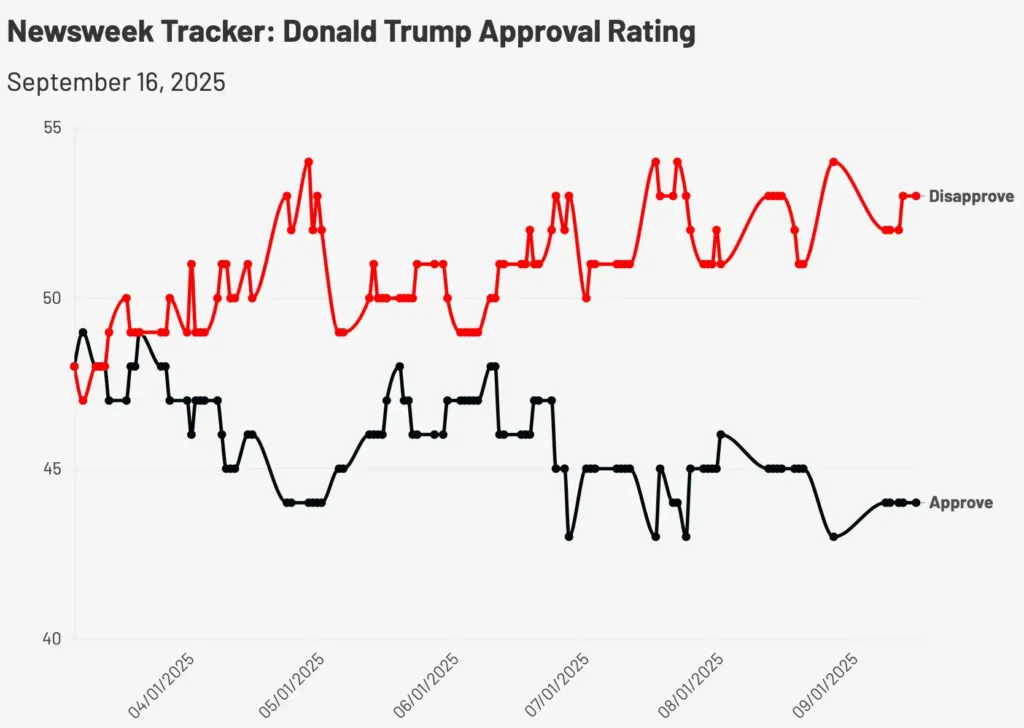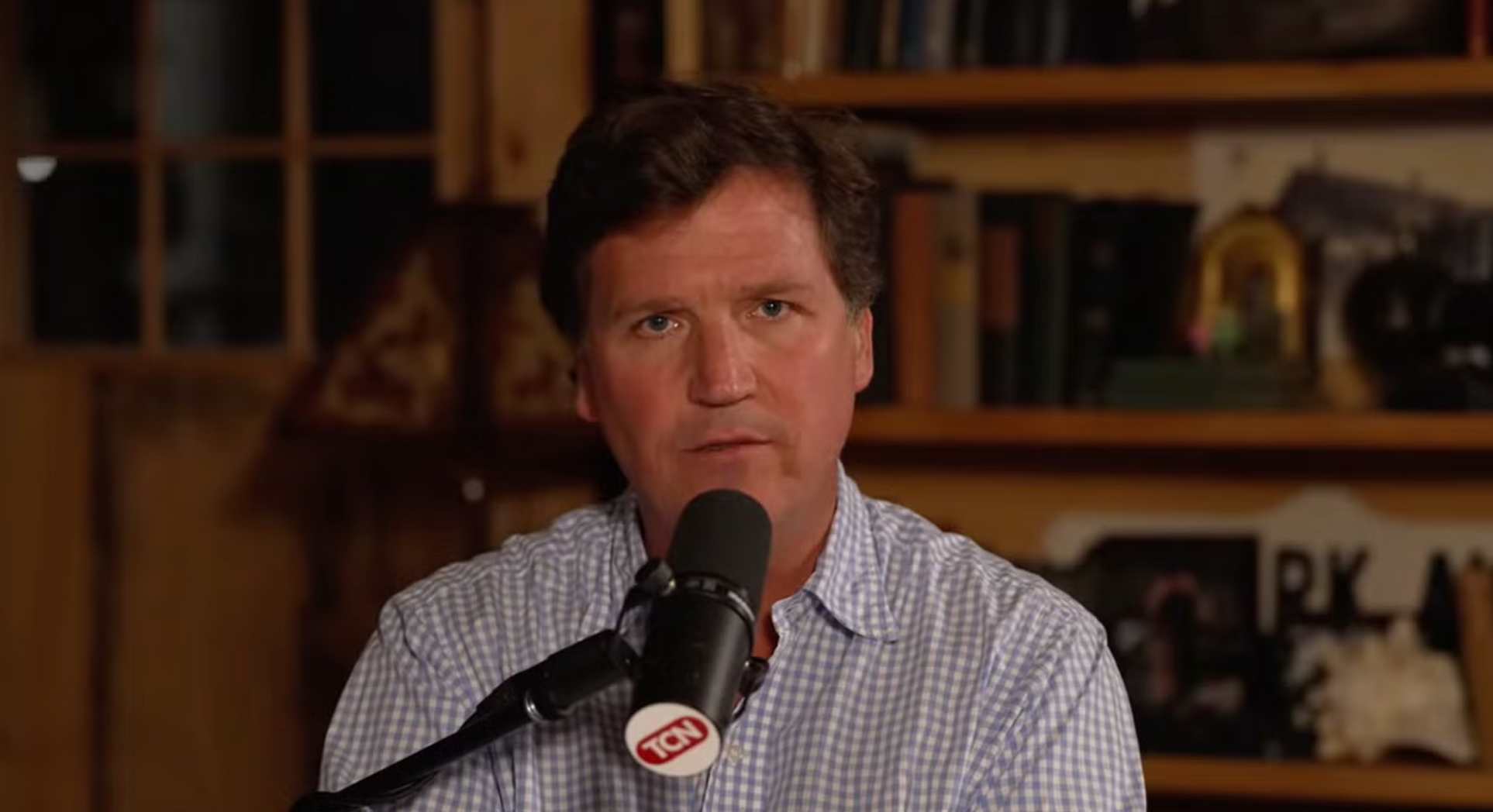President Donald Trump is losing ground with Latino voters, with new surveys showing his approval rating has dropped noticeably over the past several months.
This matters because Latino support played a key role in Trump’s presidential win last November. Historically, Hispanic voters have leaned Democratic—71 percent backed Barack Obama in 2012, 66 percent supported Hillary Clinton in 2016, and 63 percent voted for Joe Biden in 2020, according to Pew Research Center and AP VoteCast.
But in 2024, Trump made major gains. His backing among Hispanic voters climbed to 43 percent, an eight-point increase from 2020 and the strongest performance for a Republican candidate since tracking began. Former Vice President Kamala Harris still won the majority with 55 percent, but the gap narrowed.
Now, recent polling shows those gains may be slipping, raising red flags for Republicans ahead of the 2026 midterms.
Research from Somos Votantes and the Global Strategy Group, conducted between August 26 and September 4, shows Trump’s net approval rating among Latinos fell from -11 points in February to -23 points in September. His favorability numbers dropped as well, from -12 to -20 during the same period.
Mike Marinella, national press secretary for the NRCC, dismissed the survey as a “junk poll.” But Melissa Morales, president of Somos Votantes, told Politico the numbers should concern Republicans and could have serious consequences for 2026.
Other surveys mirror the same decline. A CNN poll last week showed a similar dip in Trump’s approval with Hispanic voters, while a Cygnal poll conducted August 7–9 found his favorability rating with Hispanics had dropped substantially over the summer.
The Somos Votantes data points to sharp declines among independents, women, and younger Latinos. Independent voters went from -6 in February to -36 in September. Women, who were already leaning negative, shifted further from -21 to -37. Younger voters ages 18–29 saw one of the steepest drops, sliding from -6 to -33.
Latino men, who had previously leaned more positive, are also beginning to turn. Trump’s approval among them slipped from +2 to -6.
The economy appears to be driving much of that change. Approval of Trump’s handling of the economy among Latino men shifted from -1 in February to -10 in September. Overall, 64 percent of Hispanic voters say the economy is “poor,” and most believe it’s getting worse.
Rising prices are top of mind. More than 70 percent of Latinos believe Trump’s tariffs are pushing costs higher, including 42 percent who say “a lot.” Food, housing, and basic expenses lead the list of concerns, with 26 percent saying they struggle to meet everyday costs and only 12 percent saying they feel financially comfortable.
The broader economy paints a bleak backdrop. Consumer prices rose 2.9 percent in August compared with the year before—the sharpest annual jump since January. Tariffs alone have added an estimated 2.3 percent in short-term costs. Housing affordability has collapsed, with the income needed to buy a median-priced home now at $114,000, a 70 percent increase since 2019.
The labor market is showing cracks as well. The U.S. added just 22,000 jobs in August after losing 13,000 in June, pushing unemployment to 4.3 percent, the highest since 2021. In August, the Bureau of Labor Statistics also issued a major revision, slashing 911,000 jobs from totals dating back to April 2024. These hits weigh heavily on Latinos, who are overrepresented in construction, service, and blue-collar jobs.
Despite contributing over 30 percent of U.S. GDP growth since 2019 and wielding $2.4 trillion in buying power, Latino households earn a median of $65,500—well below the $93,900 median for white households—leaving them more exposed to inflation and instability.
Trump’s strict immigration enforcement policies are adding strain. Expanded ICE raids, mass deportations, and new detention centers—including a $45 billion plan to construct large-scale camps like Florida’s “Alligator Alcatraz”—have been tied to weaker consumer confidence and reduced spending in Latino communities, according to the Financial Times.
The polling highlights a growing gap between Latino priorities and what they see from Trump. Half of respondents want Washington to address inflation and the cost of living, and 39 percent prioritize jobs and the economy. Yet only 17 percent believe Trump and Republicans are focused on inflation, and just 15 percent think they are focused on jobs. Instead, most believe Trump is focused on tariffs (51 percent) and the border (47 percent). That disconnect may explain why his approval is sliding.

Overall, Trump’s approval has been trending downward. NWeek’s tracker shows 44 percent approve of his job performance while 53 percent disapprove, for a net rating of -9. That’s slightly worse than the -8 from the previous week. Voter sentiment continues to be driven primarily by concerns over the economy, with a recent Fox News poll finding 37 percent of voters list it as their top issue, more than any other.
Marinella of the NRCC defended the Republican position, saying: “Democrats are desperate to spin a false narrative about Hispanic voters, but the reality is simple: Republicans continue earning their trust while Democrats have been losing it for years.”
Melissa Morales of Somos Votantes, however, told Politico the results point to opportunity for Democrats: “What began earlier this year with independents and women has really intensified and spread to basically every demographic subset of the Latino electorate, including groups that once leaned toward him like Latino men. This won’t automatically translate to support for Democrats, but there is a huge opportunity to turn what was a liability into a positive. There is an opportunity here for Democrats to show an alternative.”
She added the implications extend beyond Trump: “Voters are really equating Republicans and Trump as one in the same.”



